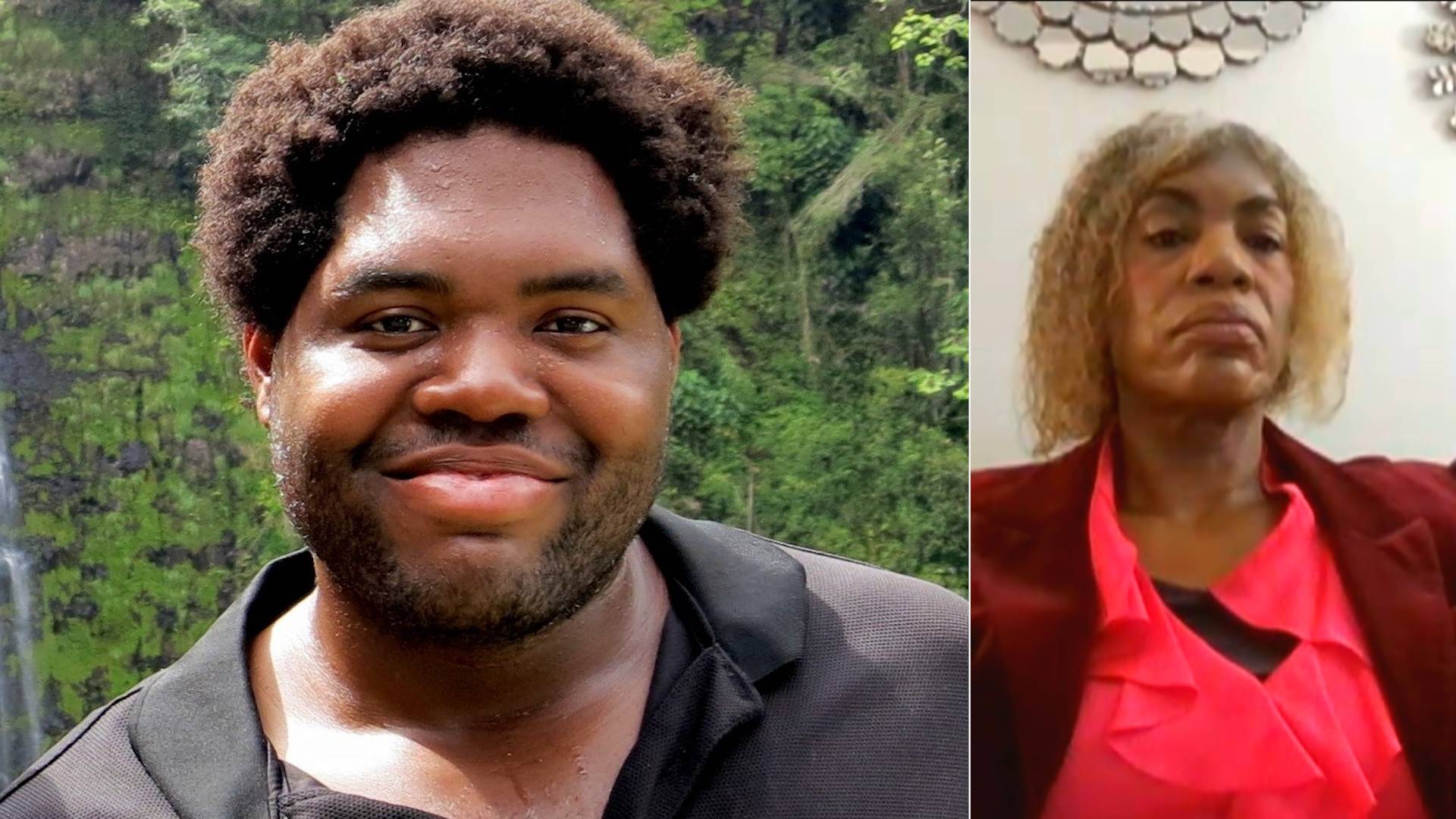This is a rush transcript. Copy may not be in its final form.
AMY GOODMAN: This is Democracy Now!, as we continue to look at the death of these two men. We just were talking about Jordan Neely. Now we’re going to look at the death of the award-winning piano virtuoso Herman Whitfield III. It’s another tragic story of a Black man who was killed while experiencing a mental health crisis. A warning: This segment contains graphic descriptions of violence.
On Friday, two Indianapolis police officers were acquitted in his 2022 killing. Herman Whitfield III died after the officers repeatedly tased him, handcuffed, pinned him to the ground as he cried out he could not breathe.
HERMAN WHITFIELD III: I can’t breathe! Can’t breathe! Oh man! Oh no!
STEVEN SANCHEZ: I’m holding his hand, trying to get —
HERMAN WHITFIELD III: No! No!
STEVEN SANCHEZ: I got his hand. I got his hand.
AMY GOODMAN: He’s shouting “I cannot breathe.” The jury found the officers Adam Ahmad and Steven Sanchez not guilty on all counts of involuntary manslaughter, reckless homicide and battery.
In April 2022, Whitfield’s parents called 911 to ask for help as their son experienced a mental health crisis in their home. The officers found Whitfield without clothes on, bleeding from the mouth. Instead of helping him, they attacked the 39-year-old with a stun gun, then restrained him. Whitfield’s death was later ruled a homicide. On Tuesday, Democracy Now! reached out to Whitfield’s father, Herman Whitfield Jr., who talked about his son’s love of music.
HERMAN WHITFIELD JR.: He was around 6 years old when he started composing, and he started playing piano at 4. So I would just like for him to be remembered that way, just a wonderful person. Early in his career, he went to nursing homes and played for people, and always talkative, informative and a very healing person to talk to. …
And as the world on, his music will probably be played, and I’m sure the world will realize how they will miss him, too. And not to be able to see his potential in full is probably the most — is one of the saddest parts of this whole process, not to see his full potential and the things that he could have probably done in the future.
AMY GOODMAN: That was Herman Whitfield Jr., the father of Herman Whitfield III, who died in 2022 after two Indianapolis officers repeatedly tased him, handcuffed and pinned him to the ground as he cried out he couldn’t breathe.
We’re joined now by Herman’s mother, Gladys Whitfield, a former public interest law attorney, current federal administrative law judge.
Again, our condolences on the loss of your son, Gladys. If you can describe what happened that day? I mean, you’re experiencing a mental health crisis of your son. What did you hope would happen that day, that an ambulance would come?
GLADYS WHITFIELD: Yes. Thank you. Good morning, and thank you for having me on your show and talking about our son. And I’m here to, essentially, speak on his behalf, since he can’t speak for himself, and talk about how he was harmed and killed.
But, yes, I called 911 for an ambulance, because Herman was having a mental health crisis. And I wanted the ambulance to come and take him to the hospital. And so, instead of that happening, as you can see on the videos — the videos are all over the internet, the bodycam videos — Herman was handled so roughly and dehumanized — I think that had to be part of their mindset, the officers’ mindset — and ultimately killed him.
AMY GOODMAN: Can you talk about the trial and the acquittal of the two Indianapolis officers, Gladys Whitfield?
GLADYS WHITFIELD: Well, the trial went on for five days. It started Monday, and the jury began deliberations on Friday. And that same day, Friday, the officers — or, rather, the jury returned its verdict of not guilty on all charges for both officers.
And we were very disappointed. We thought the evidence showed beyond a reasonable doubt that the officers had acted — had violated the law and committed criminal acts and should be held accountable for what they did.
AMY GOODMAN: How do you want your son to be remembered? What do you think justice would look like?
GLADYS WHITFIELD: I guess I’m reframing in my mind what I think justice would look like, because I thought justice would look like the officers being convicted and being held accountable for their actions.
And I just want to say here that one of the officers, Ahmad, had already previously had a complaint filed against him for harming a civilian. And at that time, Mr. Ahmad was an officer in another part of Indiana called Hobart. And a complaint was filed in Lake County court. The outcome of that complaint, that court complaint, I am not sure, but previous allegations have been made about officer Ahmad when he has been performing police duties.
But so, at this point, because the jury found the defendants not guilty, justice would include that we be found — we get a favorable decision in the U.S. District Court in the Southern District of Indiana, where we have filed a complaint for the wrongful death of Herman. And also we have a state claim pending, my husband and I, for the infliction of emotional distress, because — I don’t know if you could see in that video, but Herman was killed in our home right in front of us. And it was so, so tragic and unexpected and unnecessary.
AMY GOODMAN: You’re a judge, Gladys Whitfield.
GLADYS WHITFIELD: So, part of justice — yes.
AMY GOODMAN: I’m wondering, in this last 30 seconds, when someone is dealing with a mental health crisis, what are they supposed to do?
GLADYS WHITFIELD: Well, my understanding, based upon the complaints or the pleadings that have been filed in court, and the depositions, where the officers were deposed and asked about what proper procedure is, in a case where an individual is having mental health crises, the officers are supposed to take time, try to negotiate, talk to the person, use persuasion and to just try to deescalate.
AMY GOODMAN: Well, Judge Gladys Whitfield —
GLADYS WHITFIELD: Also — yes.
AMY GOODMAN: — we have to leave it there but this is an issue we will continue to talk about. Gladys Whitfield is the mother of Herman Whitfield III, award-winning African American piano virtuoso, killed by Indianapolis police in 2022 after his parents called 911 to ask for help for their son experiencing a mental health crisis.
That does it for our show. I’m Amy Goodman. Thanks so much for joining us.











Post comments (0)